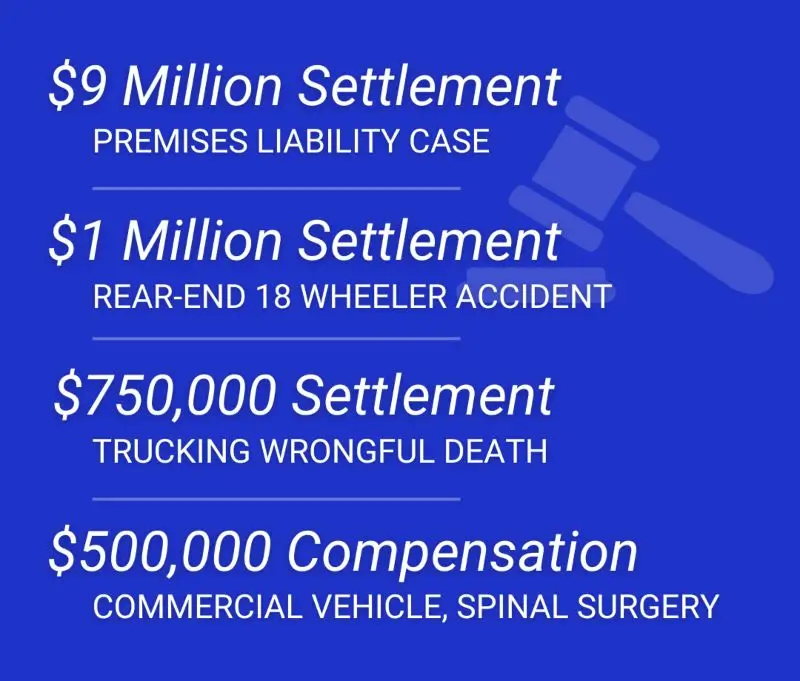At the Nava Law Group, P.C., our Houston personal injury attorneys understand that our Texas laws and statutory rules can be complex and confusing — especially after you have been injured in a car accident, motorcycle collision, or as a visitor or guest on public or private property.
To follow is a simplified overview of how and when you can pursue a personal injury claim in Texas. For more detailed information about your injuries and your case potential, contact our Houston personal injury attorneys to discuss the unique details and circumstances of your accident today.
Texas Personal Injury Claims Require Proving Fault
Before a personal injury claim can be filed, we must first be able to prove three elements.
They include:
- The responsible party was negligent
- The negligence caused your personal injury
- Your injuries resulted in the compensatory damages we are seeking on your behalf
Is the At-Fault Party Responsible for My Complete Financial Recovery?
The short answer is, it depends on the circumstances of your accident.
In Texas, we have a modified comparative negligence rule in shared-fault injury cases.
That means if you have any fault in the accident — and most insurance companies will try to prove that you do to lessen their liability — the compensation you are entitled to will be reduced by the amount that is equal to your percentage of fault.
For instance, let’s say your total damages are $50,000. If you are found 25% liable for the car accident in which your injuries occurred, and the other driver 75% liable, the settlement will be reduced by $12,500, or 25% of the total damages.
If you are found to be more than 50% to blame for the accident, you cannot pursue financial recovery from the other at-fault party.
Are There Caps on Personal Injury Damages in Texas?
Texas places statutory limitations on damages in medical malpractice cases only.
The cap for non-economic damages, like pain and suffering, is limited to $250,000 per defendant, and $500,000 overall.
If your medical malpractice case involves wrongful death, there are complex rules regarding the total financial recovery, which are adjusted for inflation. Our Houston wrongful death lawyers can explain the details of your unique case during a free consultation.
What If I Am Pursuing the Texas Government for My Injury Claim?
Personal injury claims against the Texas government require a formal claim to be filed with the governmental unit believed to be responsible for your injury.
More importantly, the claim must be filed within six months of the incident.
What Types of Compensation Can I Pursue In a Texas Personal Injury Case?
Each personal injury case we handle at the Nava Law Group, P.C. is unique, and the type of compensation you may be entitled to pursue from the at-fault party will depend solely on the circumstances of your injuries.
The three types of damages we may pursue, based on your case, can include:
- Economic Damages
Economic damages can include medical expenses, lost wages, and property damages.
- Non-Economic Damages
Non-economic damages can include pain and suffering, mental anguish, scarring, and disfigurement.
- Exemplary/Punitive Damages
Exemplary damages, also called punitive damages, are designed to punish the at-fault party for, particularly negligent or reckless conduct.
What Is the Statute of Limitations for Filing a Personal Injury Claim in Texas?
Personal injury claims must be filed within two years of the date the accident occurred in the State of Texas.
Have You Been Hurt in An Accident in Texas? Contact the Nava Law Group, P.C. today
To learn the best course of legal action for your personal injury, contact our Houston auto accident attorneys at the Nava Law Group, P.C. today by calling (713) 218-2400 to schedule a free consultation. We will answer each of your questions and provide real-time solutions for your financial recovery options.








